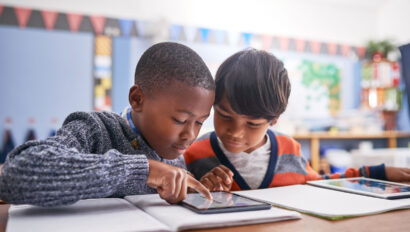The Importance of Play for Child Development
The past year has been very tough on children with their whole world turned upside down by the pandemic. Playgrounds have been closed, playdates have been halted, and schools have not been able to operate the same. Socialization has been limited for children, and so has playtime. Children throughout the country have been deprived of play which is detrimental to their emotional and developmental well-being. As the country begins to reopen and the pandemic comes to an end, it is more important than ever for children to have time to play.
Free play is a cherished part of childhood that brings happiness and joy to children. Children should have the opportunity to play in both school and home settings. Children are craving socialization and exploration. They need to experience new things and form new relationships to continue to grow and develop. Play not only brings joy to children, but also children learn extraordinary amounts of things through play and exploration. There are many additional benefits of play, including:
- Stimulating Brain Development: Pediatricians agree that play is essential for healthy brain development. Information captured from the early years of a child’s life builds a foundation for their brain. Play stimulates a child’s brain, providing life experiences and environmental enrichment.
- Improving Communication Skills: Research suggests that play during the early years leads to better communication and language skills down the line. Through play, children learn to interact with others and communicate how they feel and what they want to do. When playing with parents or teachers, new words and concepts can be easily taught.
- Encouraging Creative Thinking: Play allows children to use their creativity and express themselves. Creativity is linked to critical thinking and problem solving, both essential skills children need to succeed academically and socially.
- Promoting Active and Healthy Bodies: This country’s obesity epidemic is fueled by passive entertainment such as watching television or playing video games. Play allows children to be active while also promoting motor skills.
- Allowing for Early Learning: Young children learn much better through interactive experiences and playtime than listening to someone talk in front of a classroom. Early childhood educators incorporate the curriculum into activities that allow children to learn new skills while playing and having fun.
- Strengthening Relationships: Children can build friendships with their peers that they play with. Play can also enhance a child’s relationship with their parents. A child’s memories of fun playtime with their parents provide positive life experiences that can strengthen their bond.
In our classrooms at Les Enfants, you can find children playing and exploring. Our dedicated staff is trained in the “Creative Curriculum,” which is based on research and promotes the philosophy that children learn through play. Contact us to schedule a tour and learn more about our curriculum at (201) 592-6695.



